United Nations Day 2024
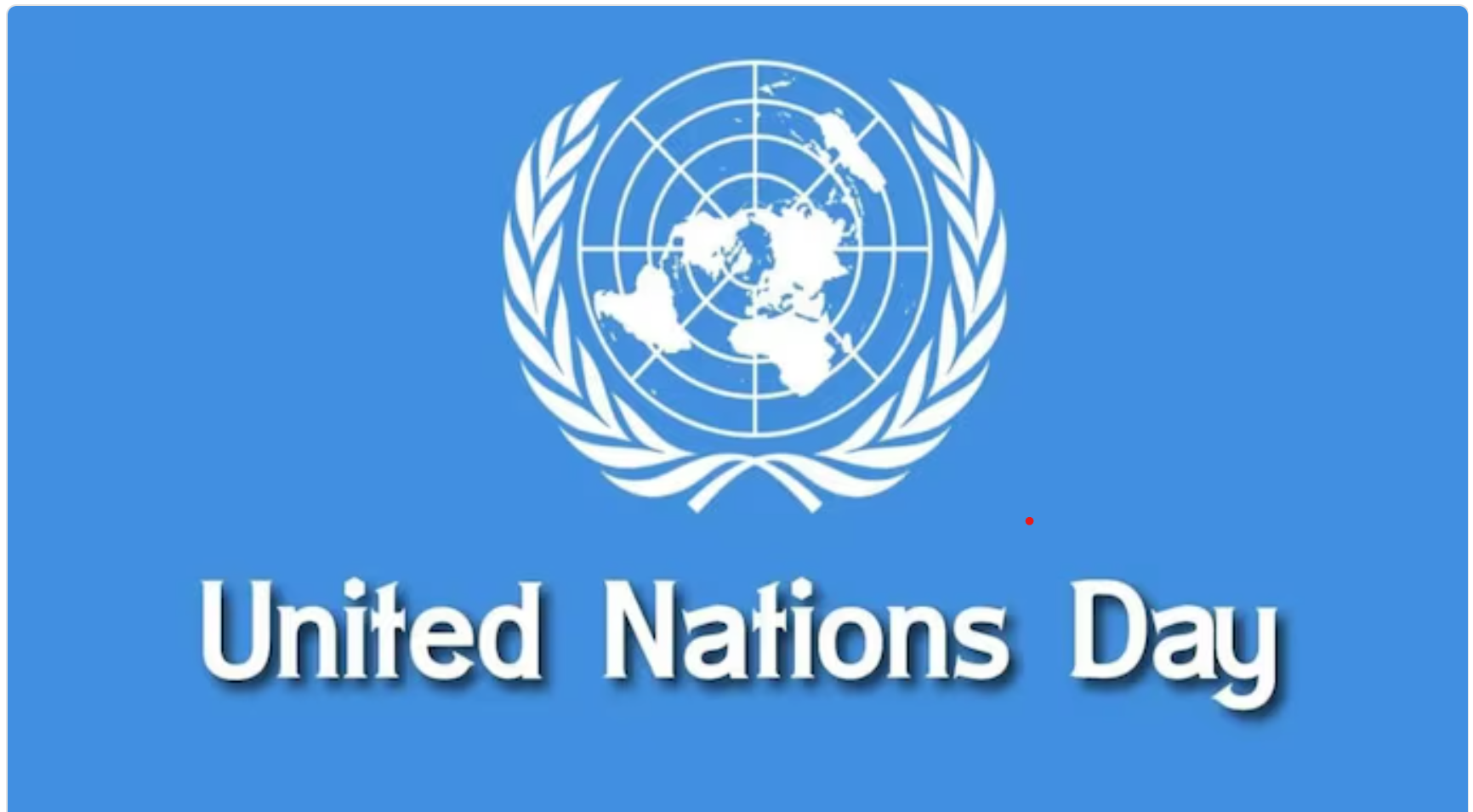
- 25 Oct 2024
In News:
United Nations Day is celebrated each year on October 24 to mark the anniversary of the UN Charter's entry into force, aiming to raise awareness about the goals and achievements of the international body.
Key Highlights:
- Purpose: Celebrates the anniversary of the UN Charter coming into effect on October 24, 1945, after World War II.
- Goal: Raise awareness about the UN’s objectives and accomplishments.
UN Charter Overview
- Signing & Implementation:
- Signed on June 26, 1945, in San Francisco.
- Came into effect on October 24, 1945.
- India ratified the UN Charter on October 30, 1945.
- Predecessor: The League of Nations, created in 1919 after WWI, aimed at promoting international cooperation and peace.
- Content:
- Foundational document of the UN, binding all member states.
- Establishes principles of international relations, including equality of nations and the prohibition of force between countries.
- Amended three times: 1963, 1965, and 1973.
UN's Core Objectives
- Peace and Security: Maintaining global peace and preventing conflicts.
- Humanitarian Aid: Providing assistance to those in need.
- Human Rights: Protecting and promoting human rights globally.
- International Law: Upholding the rule of law on the global stage.
Main Organs of the UN
- General Assembly (UNGA):
- Comprises all 193 Member States, each with one vote.
- Main policy-making body, addressing international issues covered by the UN Charter.
- Security Council (UNSC):
- Consists of 15 members (5 permanent, 10 elected for two-year terms).
- Permanent members: China, France, Russia, UK, USA.
- India has been elected to the UNSC eight times.
- Economic and Social Council (ECOSOC):
- Composed of 54 members elected by the General Assembly.
- Coordinates policy and addresses economic, social, and environmental issues.
- Trusteeship Council:
- Established to oversee trust territories transitioning to independence.
- International Court of Justice (ICJ):
- The only international court resolving disputes between UN member states.
- Handles contentious cases and provides advisory opinions.
- Secretariat:
- Led by the Secretary-General, appointed by the General Assembly based on Security Council recommendations.
- Acts as the chief administrative body of the UN.
Note: Most UN organs, including the UNGA, UNSC, ECOSOC, Trusteeship Council, and Secretariat, are based in New York, while the ICJ is located in The Hague, Netherlands.
Small Island Developing States
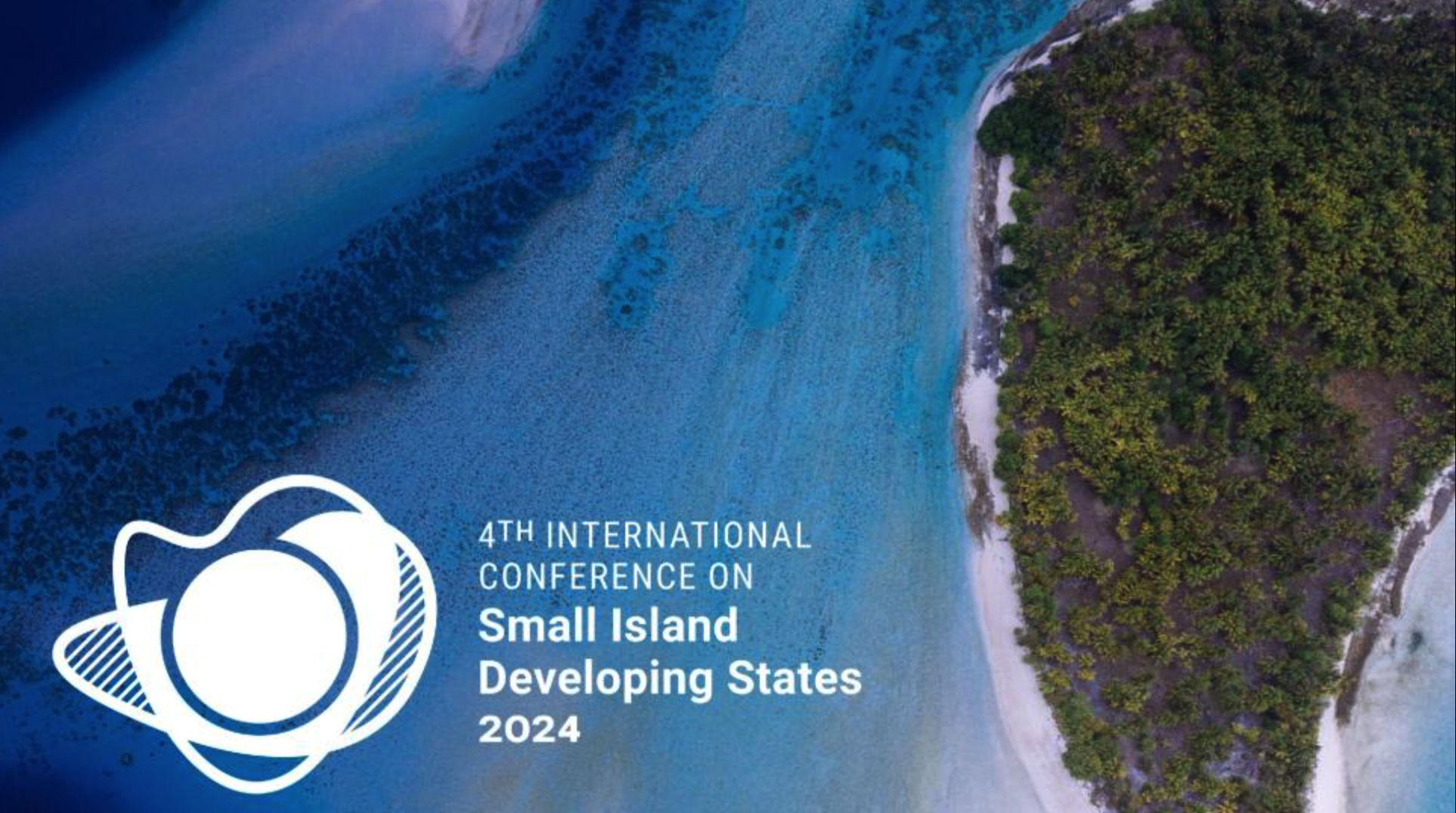
- 27 May 2024
Why is it in the News?
The Fourth International Conference on Small Island Developing States (SIDS-4) will be convened from May 27-30, 2024.
About Small Island Developing States (SIDS):
- Small Island Developing States (SIDS) are a distinct group of 39 States and 18 Associate Members of United Nations regional commissions that face unique social, economic and environmental vulnerabilities.
- The three geographical regions in which SIDS are located are:
- The Caribbean
- The Pacific
- The Atlantic, Indian Ocean and South China Sea (AIS)
- SIDS were recognized as a special case both for their environment and development at the 1992 United Nations Conference on Environment and Development held in Rio de Janeiro, Brazil.
- The aggregate population of all the SIDS is 65 million, slightly less than 1% of the world’s population, yet this group faces unique social, economic, and environmental challenges.
- SIDS face a host of challenges including for many, their remote geography.
- As a result, many SIDS face high import and export costs for goods as well as irregular international traffic volumes.
- For SIDS, the Exclusive Economic Zone (EEZ)—the ocean under their control—is, on average, 28 times the country’s land mass.
- Thus, for many SIDS the majority of the natural resources they have access to comes from the ocean.
- Factors like small population size, remoteness from international markets, high transportation costs, vulnerability to exogenous economic shocks and fragile land and marine ecosystems make SIDS particularly vulnerable to biodiversity loss and climate change because they lack economic alternatives.
- Climate change has a very tangible impact on SIDS.
- Slow onset events such as sea level rise pose an existential threat to small island communities, requiring drastic measures such as relocation of populations, and the related challenges this poses.
- These challenges are compounded by limited institutional capacity, scarce financial resources and a high degree of vulnerability to systemic shocks.
- Industries like tourism and fisheries can constitute over half of the GDP of small island economies.
- However, the importance of these natural resources extends beyond the economy; biodiversity holds aesthetic and spiritual value for many island communities.
- For centuries, these communities have drawn benefits from biodiversity in the form of food supply, clean water, reduced beach erosion, soil and sand formation, and protection from storm surges.
- At the regional level, SIDS are also supported by inter-governmental organisations, primarily the?Caribbean Community (CARICOM),?the?Pacific Islands Forum (PIF)?and the Indian Ocean Commission (IOC).
United Nations Conference on Trade and Development (UNCTAD)
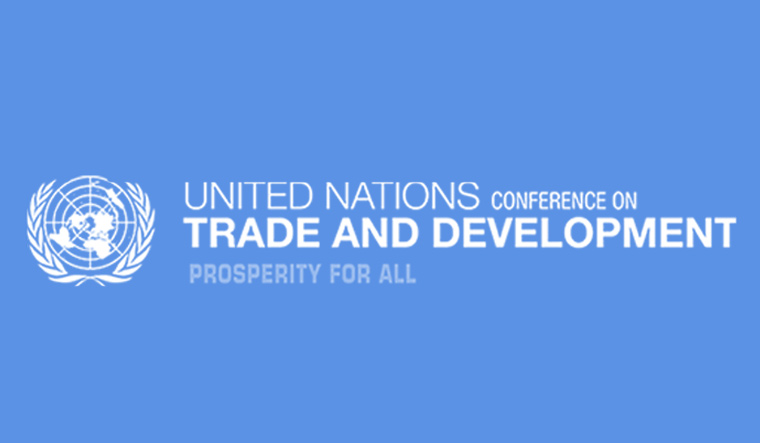
- 17 Apr 2024
Why is it in the News?
Global trade dynamics are expected to remain sluggish in 2024, the United Nations Conference on Trade and Development (UNCTAD) has warned.
Key Highlights of the Report:
- UNCTAD’s latest projections indicate global growth of 2.6 percent in 2024, slightly slower than in 2023.
- This marks the third consecutive year in which the global economy will grow at a slower pace than before the pandemic when the average rate for 2015–2019 was 3.2 percent.
India’s growth is expected to be marginally lower than in 2023:
- Regarding India, the report stated that the economy grew at 6.7 percent in 2023 and is expected to be marginally lower at 6.5 percent in 2024.
- It noted that the expansion in 2023 was influenced by strong public investment and the services sector, which received a boost from robust local demand for consumer services along with assured external demand for business services exports.
- The Reserve Bank of India (RBI) is expected to keep interest rates constant in the near term, while strong public investment expenditures will offset restrained public consumption spending.
About the United Nations Conference on Trade and Development (UNCTAD):
- The United Nations Conference on Trade and Development (UNCTAD) is an intergovernmental organization established in 1964 to promote the interests of developing countries in global trade.
- With its headquarters in Geneva, Switzerland, UNCTAD has 195 member states and collaborates with numerous nongovernmental organizations worldwide.
- The organization focuses on formulating policies related to various aspects of development, including trade, aid, transport, finance, and technology.
- UNCTAD plays a crucial role in addressing the concerns of developing countries regarding international institutions, such as the World Trade Organization (WTO), the International Monetary Fund (IMF), and the World Bank.
- By providing a platform for these countries to discuss and tackle their unique challenges, UNCTAD contributes to global economic development and reduces inequalities.
- Some notable achievements of UNCTAD include the establishment of the Global System of Trade Preferences (now replaced by the World Trade Organization), which reduces tariffs and removes non-tariff trade barriers, the Common Fund for Commodities, providing financial assistance to countries dependent on commodity exports, and various agreements for debt relief.
- In recent years, UNCTAD has focused on addressing globalization challenges and helping the least developed countries integrate into the global economy.
UNITED NATIONS FORUM ON FORESTS (PIB)
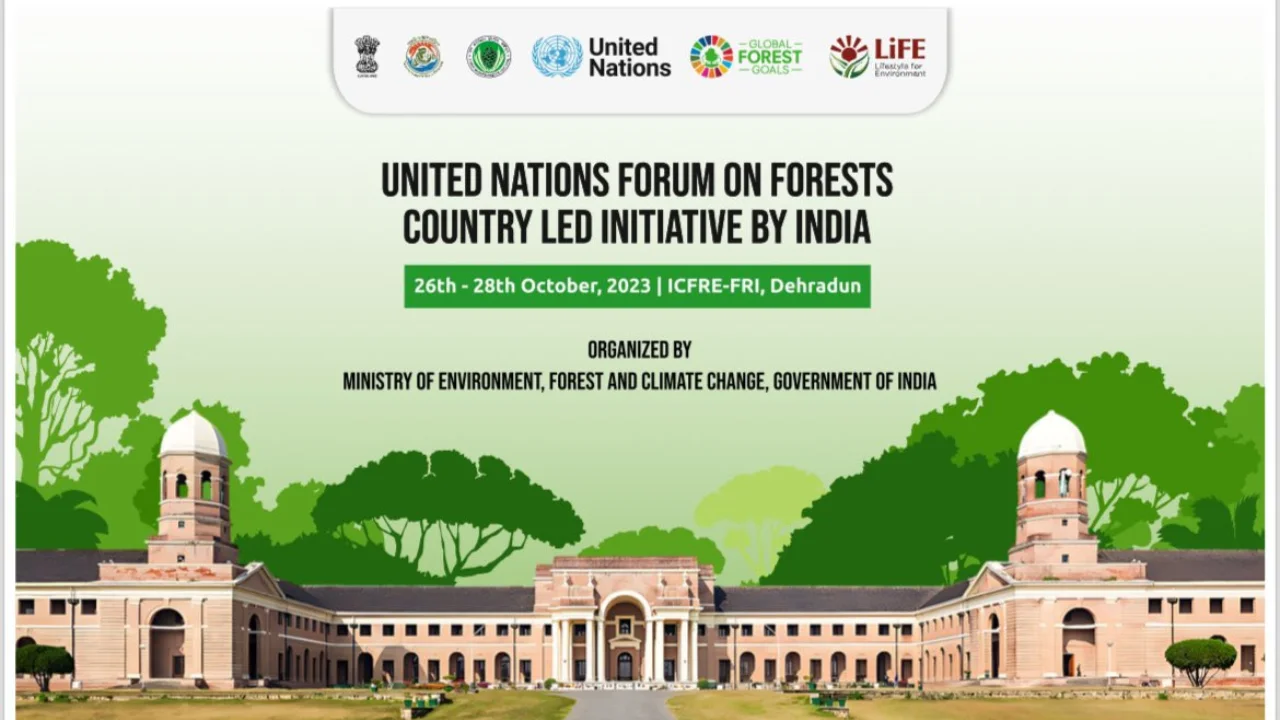
- 26 Oct 2023
What is the News ?
The United Nations Forum on Forests (UNFF) will organise a Country-Led Initiative (CLI) event hosted by the Ministry of Environment, Forests, and Climate Change from October 26–28, 2023, at the Forest Research Institute (FRI), Dehradun, Uttarakhand.
Facts About:
- It encourages the sustainable development, preservation, and management of all kinds of forests.
- The UNEconomic and Social Council of the United Nations (ECOSOC) was founded it in 2000.
- Every year, the Forum gathers at the UN Headquarters in New York to discuss high-level policy issues in even years and technical issues in odd years, bringing together representatives of all member states and agencies with an interest in forests.
- All United Nations members as well as specialized agencies make up the forum, which has universal membership.
- India is one of UNFF's founding members.
UNITED NATIONS WORLD TOURISM ORGANISATION (UNWTO) (PIB)
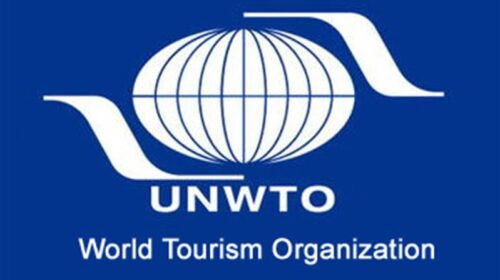
- 21 Oct 2023
What is the News ?
The Dhordo village in Gujarat's Kutch district was recently recognized as the Best Tourism Village by the United Nations World Tourism Organization (UNWTO), which was praised by India's Prime Minister.
Facts About:
- The United Nations World Tourism Organization (UNWTO) is a specialized agency of the United Nations responsible for promoting sustainable and responsible tourism on a global scale.
- Its functions include acting as a global forum for tourism policy issues and encouraging the adoption of the Global Code of Ethics for Tourism.
It was founded in 1975.
- Members: 159 countries are members of the UNWTO.
- Arabic, Chinese, English, French, Russian, and Spanish are the UNWTO's official languages.
- Structure of the organization:
The World Tourism Organization's General Assembly is the organization's main meeting.
It is made up of full members and associate members. It convenes every two years.
- The Executive Council serves as the UNWTO's governing body.
It is made up of 35 members, one for every five full members, who are elected by the General Assembly. It holds at least two meetings per year.
- Headquarters are in Madrid, (Spain).
